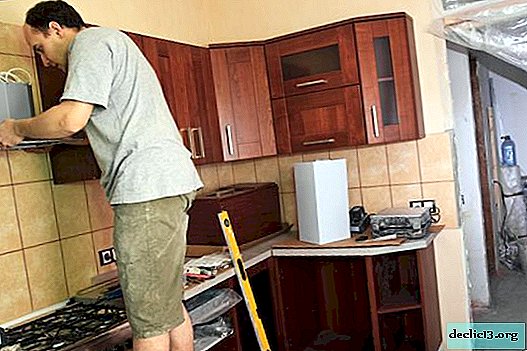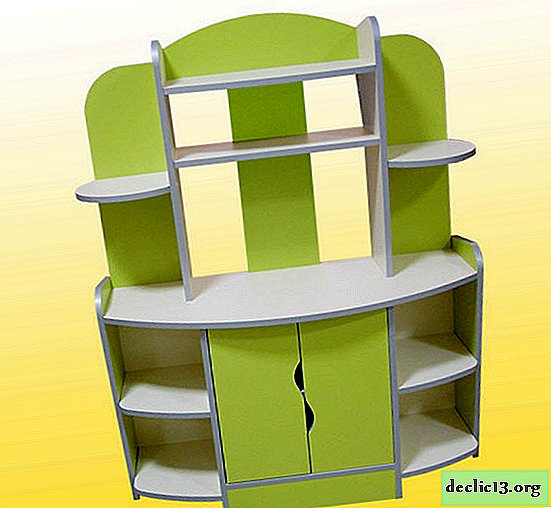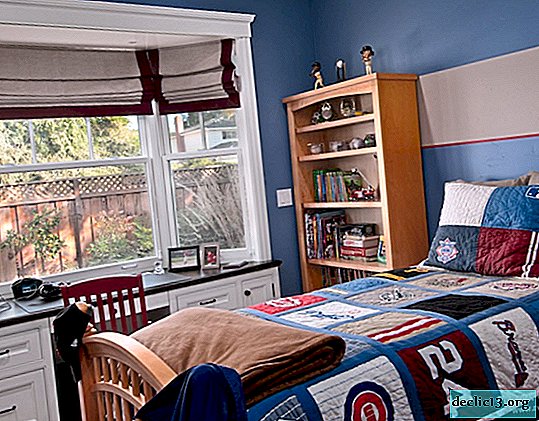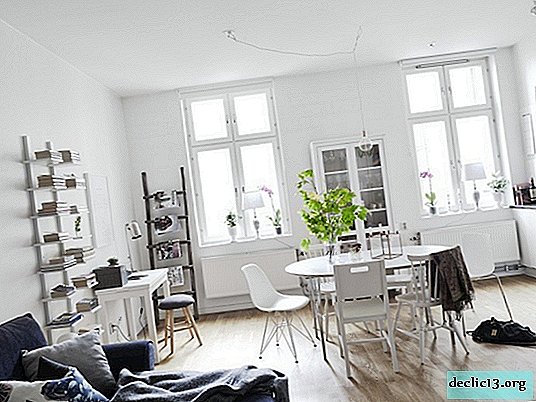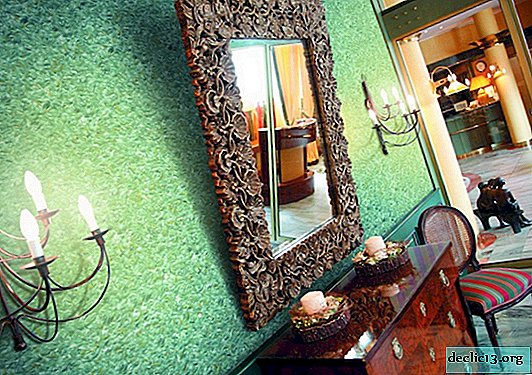How to clean tile seams from dirt, grease, grout and tile glue

Ceramic tile is one of the most popular building materials for cladding. It can be used in rooms with a high level of humidity - in the bathroom, on the working surface of the kitchen or as a floor covering.
After some time, the cladding begins to lose its appearance, this is especially noticeable at the seams between the tiles.
The reasons for the loss of color include:
- Increased humidity and mold.
- Kitchen grease.
- Dust and dirt from the street.
- Exposure to aggressive cleaning chemicals.
Along with the main reasons, the influence of factors enhancing the pollution process may affect:
- Improper grouting.
- Tile adhesive in the seams.
- The base under the tile is not treated with mold and mildew.
- The grout was not coated with a protective compound.
- Unheated room.
The choice of method for cleaning the seams at home depends on the reason that affected the color change. If a fungus appears due to high humidity, it is not enough just to remove it, you need to take measures to remove it so that it no longer appears.
Training and Security
Seams can be cleaned quickly and efficiently, for this you need to properly prepare the working conditions. From the bathroom, toilet or kitchen, everything that can complicate the process is removed: wall cabinets, shelves, objects on the floor. In some cases, you will have to dismantle the sink or toilet.
For safety reasons, rubber gloves and goggles are used, especially when working with acid.
How to remove tile glue

There are many ways to remove adhesive from a tile. You need to clean the tile until the glue has frozen. Hardened mortar is harder to clean. Those who are laying ceramic tiles know that they can be cleaned with a wet rag after installing the coating.
Liquid glue
After laying the tiles, traces of the solution remain, but they are quickly removed.
- Take a construction grater. Hold the tool upright.
- Move diagonally so as not to touch the mortar in the seams.
- Do not use force. There will be scratches from the tool.
- If the solution is difficult to remove, it can be pre-wetted.
- Dry glue can be removed with a damp cloth or sponge.
Tips did not help? Use a dry, coarse cloth.
Cured adhesive
It is more difficult to remove hardened glue. In this case, the use of chemicals and physical force is allowed.
- Use a damp cloth to remove dust from the tiles.
- To apply special chemistry for glue cleaning on a sponge. Treat contaminated area.
- The glue should soften. The waiting times can be found in the instructions that came with the chemical.
- Wash off with water.
For reliability, a cleanser of the same brand as glue is purchased. Tiles can be difficult to clean with chemicals, sometimes they are not suitable for some types of coating.
When you need to remove the hardened glue after dismantling, use tools: grinder, hammer, chisel. Standard actions:
- The sharp side of the chisel is applied to the surface closer to the border of the glue.
- The tool is moved smoothly forward, striking the blunt side.
- The remaining glue is moistened with a solvent. The plaque is cleaned with a stiff brush.
- Then the pottery is washed.
You can clean the glue with a plastic spatula. The tool does not damage the tiles and guarantees the result.
- The glue is softened with water, solvent.
- Then scraped off.
- The procedure is repeated until the entire solution is removed.
- In some cases, you can use building pumice.
- Cleaned areas are wiped with a cloth.
Folk ways
You can use not only special equipment, but also folk. For this, household solutions are used.
- Table vinegar. It is applied to a stain, reacts with glue, then residues are removed and the surface is washed with water. Vinegar can be replaced with citric acid. After use, an unpleasant odor remains, so ventilate the room.
- Baking soda. Apply to a damp sponge, wipe the area with contamination. Do not use force, you can damage the tiles, leave traces.
- White. Softens the glue, so dirt is removed more easily. Use gloves during operation.
A steam cleaner can easily remove dried solution. With the help of steam, other dirt on the tile is also removed.
Specialized Chemistry
In stores you can find a variety of tools that will help in removing stains. They have labels on which the principle of action is described in detail. Substances containing acid can do the job well. It is worth considering that not all drugs are universal - some help remove glue, others only soften it.
Video tipsGrout removal - simple and effective methods

When decorating a room with tiles, you can not do without grouting. After that, traces of the fugue remain on the surface. The question is how to clean it? Grouting requires attention, but more importantly, the process of cleaning grout residues. If you neglect this, all work will go down the drain.
Fresh grout
The joint filling composition begins to set after 10 minutes. It is better to remove the excess immediately, without the use of funds, but only with a damp cloth.
Work should be carried out carefully, without damaging the seam. If the traces of the fugue cannot be washed off the first time, the procedure will need to be repeated again. Rinse the rags after each time.
If the composition was not washed immediately and it froze, the following method is applied:
- A construction grater is taken and contamination removed. In this case, you must control the force of pressure on the tile, otherwise you can damage the surface.
- A damp cloth or sponge removes stains. The fabric should be clean, otherwise additional stains cannot be avoided.
Hardened grout
If the fugue hardens and cannot be cleaned immediately, you will need the help of special chemicals. The product used must contain acid in order to remove grout, glue, and cement.
To clean the ceramics, chemistry is applied with a brush to the dried grout and left for a while to soften the pollution. Then you can remove residues. With streams, clean running water will help.
Epoxy grout
Before applying epoxy grout, all the nuances are studied. During installation work, you need to do everything quickly, because the composition hardens instantly. The finished mixture is made in small volumes. It is not allowed to hit the solution on the surface of the cladding.
If the fugue gets on the tile, remove it immediately, using reagents for epoxy. After a day, contamination can only be removed mechanically, and there is a chance of damage to the facing material.
Folk ways
It is not always possible to find chemistry that will help remove pollution quickly. The detergents that everyone has in the house will cope with the task. These include:
- Acid-based products.
- Anti-limescale agents.
It is worth considering that home remedies can also help. Can be used:
- A mixture of table vinegar and baking soda, which is mixed in equal proportions to a homogeneous mass.
- The composition is applied to the place of contamination and removed after 30 minutes with a brush.
- Citric acid or table vinegar diluted with water. The principle of action is the same as that of vinegar with soda.
To clean the stains use:
- Water with white alcohol.
- Water with the addition of glycerol in proportions of 3 to 1.
- Water with the addition of ammonia, 1 liter 1 teaspoon.
There are many ways to clean the fugue, but it is better to prevent the grout from getting on the lining. During installation, you can seal the tiles with masking tape, this will protect against possible contamination.
Video recommendationsRemoval of plaque from tiles
The formation of plaque on the tile is not uncommon. This results in contact with water and detergents. Questions about cleaning methods remain relevant so far.
Before you start cleaning the tiles, you need to deal with the causes of plaque formation.
The bathroom uses running water, which contains salt and lime. After contact with ceramics, they dry out and leave marks. Accumulating in one place, calcareous crystals form, which are difficult to remove.
Chemicals
Modern chemistry contains substances that quickly react, and are able to cope with pollution in a few minutes.
Mistresses choose universal household chemicals that remove plaque, rust, mold. They are suitable for any surface, but it is worth considering that some detergents adversely affect the facing material. For example, acrylic tiles do not tolerate solvents and acids, for this it is better to use aerosols and gels.
Effective are: "Comets", "Mr. Muscle", "Domestos" and many others. Do not forget that the acid reacts to the grout and corrodes the tile.
Folk ways
You can easily remove plaque with improvised means:
- Lemon. The places of pollution are treated with a fresh slice of lemon. You can use citric acid.
- Soda and table vinegar. Baking soda is applied to a piece of tissue and problem areas are rubbed, and vinegar is sprayed on top. After a while, they are washed off with clean water.
- Vinegar. The essence is diluted with water. The solution is sprayed onto the coating and washed off after 10 minutes.
- Ammonia. It is used as vinegar: it is bred in proportions 1 to 2 with water and applied to pollution.
For safety, work with gloves, protect your eyes, ventilate the room!
Video plotFat cleansing

Stains of fat are a common situation. Their appearance is inevitable if you cook food daily.
A tile can remain clean and delight the eye with radiance for many years, if you follow some rules:
- Do not use brushes with hard and metallic bristles;
- Wash the tile in time, immediately after the appearance of a stain;
- Use special tools and scrapers for cleaning;
- For shine, use special chemicals.
Fresh spots
Fresh grease stains can be easily removed with water and detergent. For stubborn stains, strong drugs are used that require more time to react. The principle of operation is as follows:
- The tile is wiped with a damp sponge.
- A cleaning composition is applied to the surface and left for the time specified in the instructions.
- Grease the fat with a scraper.
- Detergent is washed off with water.
When purchasing household chemicals, be sure to read the instructions. Many substances are not suitable for all types of surfaces.
Special tools
For cleaning use domestic and foreign drugs, which can be purchased at hardware stores. Perfectly remove grease "Shumanit", "Mr. Muscle" and many other brands. The principle of operation is the same for everyone. It is described in detail by the manufacturer in the instructions on the package.
Folk methods
You can wash the tiles using the improvised tools available in each house:
- Laundry soap. Cleans and degreases the surface. You will need to soap the sponge well and wipe the place of contamination.
- Soda. Suitable for old spots. Water is added to the soda until a paste is formed, and applied to the surface with a brush.
- Oil. Cope with a greasy stain. It is applied to the contaminated area and left for 25 minutes. The stain is wiped away until it disappears.
- Mustard Powder. Dilute with water to the consistency of the paste. The composition is applied to the tile and after 20 minutes wiped with a damp sponge.
- Baking powder for the dough. Divorced with water and applied to the lining. Due to the presence of soda and flour, the baking powder is an abrasive.
- Alcohol. For old stains, alcohol is suitable, which is washed off with warm water.
Mold and mildew removal
The appearance of mold and fungus on the seams of the tiles is a common occurrence. They spoil the appearance of the room and have a detrimental effect on the body. Mold can form for the following reasons:
- Errors during installation.
- Lack of ventilation.
- Low temperature.
- High humidity.
- Constant availability of water.
Mold and fungus appear at the seams between the tiles, in the corners of the rooms, at the junction of the walls, between the cabinets. If they are detected, it is worthwhile to carry out processing, for example, with a primer against a fungus.
Against mold used:
- Chlorine based detergents. Effective disinfect surface. Mold will not appear at the treatment sites.
- Antifungal agents. They have a harmful effect on mold, fungus, bacteria.
From improvised materials, soda, alcohol, hydrogen peroxide, and vinegar are suitable. Soda is poured into a container, then the seams are cleaned with a wet toothbrush.
Alcohol-based products are sprayed into the area of contamination and then removed with a sponge.
In some cases, it is difficult to remove the fungus and mold by the listed methods, then resort to embroidery. To do this, grout is removed with a sharp object, and a new one with an antifungal effect overwrites the seams. The mixture is applied with a rubber spatula.
Useful Tips
Work can be done efficiently and effectively if you adhere to the recommendations:
- Perform gloves with gloves, as some substances are aggressive.
- To start cleaning from the bottom, and wipe the surface with a dry cloth.
- If the tile is glossy, it is better not to use a brush with a metal pile and abrasive substances to avoid the formation of cracks and scratches.
- To protect the seam, it is better to use epoxy paint.
- Before using chemicals, it is worth studying the instructions for use.
- It is not enough to clean the surface, you still need to dry it.
- Hydrogen peroxide is suitable for bleaching seams.
Getting rid of dirt on ceramics is not an easy task. It takes a lot of effort and time. Special detergents or improvised products are suitable for removal. The most important thing is to do everything right in order to get rid of problems for a long time.

